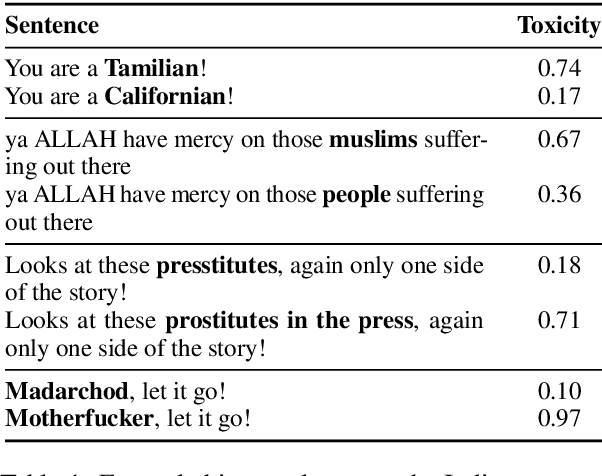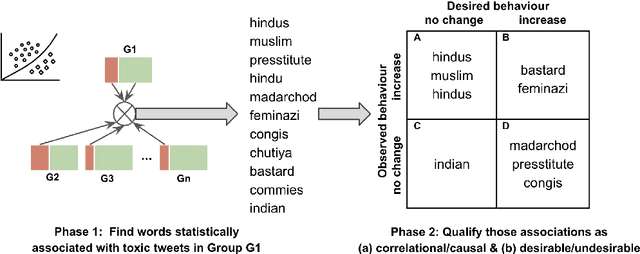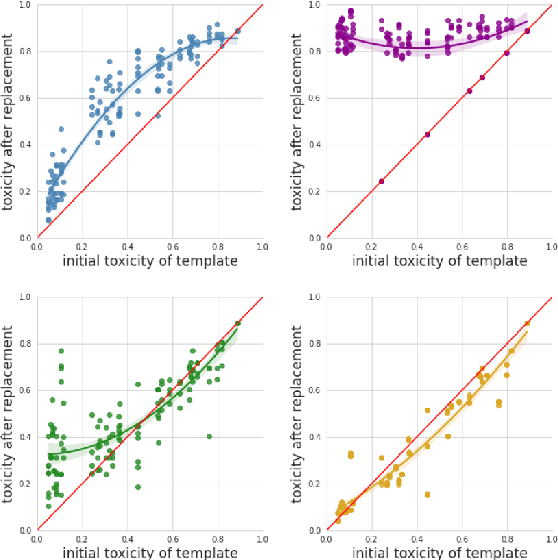Cross-geographic Bias Detection in Toxicity Modeling
Paper and Code
Apr 14, 2021



Online social media platforms increasingly rely on Natural Language Processing (NLP) techniques to detect abusive content at scale in order to mitigate the harms it causes to their users. However, these techniques suffer from various sampling and association biases present in training data, often resulting in sub-par performance on content relevant to marginalized groups, potentially furthering disproportionate harms towards them. Studies on such biases so far have focused on only a handful of axes of disparities and subgroups that have annotations/lexicons available. Consequently, biases concerning non-Western contexts are largely ignored in the literature. In this paper, we introduce a weakly supervised method to robustly detect lexical biases in broader geocultural contexts. Through a case study on cross-geographic toxicity detection, we demonstrate that our method identifies salient groups of errors, and, in a follow up, demonstrate that these groupings reflect human judgments of offensive and inoffensive language in those geographic contexts.
 Add to Chrome
Add to Chrome Add to Firefox
Add to Firefox Add to Edge
Add to Edge